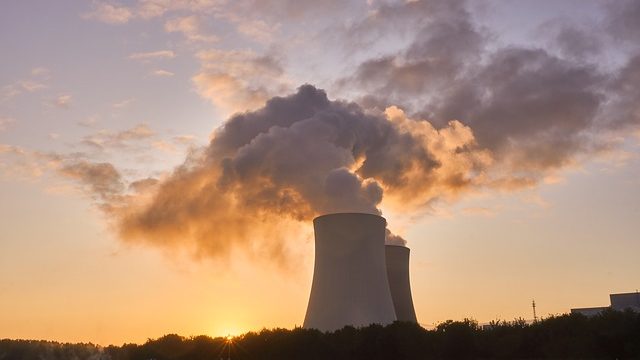
Experts in the field of nuclear energy have assessed the degree of risk for Ukrainian nuclear reactors in connection with the invasion of Russian invaders into the country.
Concerns are growing around the world about the safety of Ukraine's 15 nuclear reactors and the possibility of an environmental catastrophe in the midst of a Russian invasion.
The experts said that these reactors, located at four power plants across the country, have levels of protection to prevent a catastrophic meltdown of their core. But in the full-blown war that Vladimir Putin has unleashed, there is an increased risk that these levels of security will fail all at once.
On Friday, February 25, bursts of radiation were reported in Chernobyl , the city of the 1986 nuclear disaster that was captured by Russian forces. The remains of the reactor core are covered with concrete, and the Chernobyl nuclear power plant has become, in fact, a storage facility for spent nuclear fuel.
Ukrainian Ambassador to the United States Oksana Markarova said that the responsibility for the Chernobyl nuclear power plant now lies with Russia, as strict rules for the plant are not followed. She accused Russian forces of holding 92 plant employees hostage.
The Ukrainian regulator attributed the radiation bursts to military vehicles churning up the topsoil , which is still contaminated by the 1986 reactor explosion.
The International Atomic Energy Agency (IAEA) said Chernobyl readings remain low and do not pose a risk to the public, but added that the agency is closely monitoring Ukrainian reactors. It said IAEA Director General Rafael Grossi “remains gravely concerned”.
The six Ukrainian reactors are located at the Zaporozhye nuclear power plant , the second largest in Europe, not far from where the Russians landed thousands of troops on Friday, February 25.
So far, the Ukrainian nuclear regulator has assured the IAEA that all of its reactors are operating safely. However, the Russian offensive from the south was rapidly approaching this area.
While the likelihood of a direct strike on the plant remains low, experts warn that a catastrophe could be triggered by preventing personnel from reaching the site if there is a sustained power outage needed to keep the fuel rods cool.
Nuclear power plants use diesel generators as backup, but they rely on fuel supplies that can be severely limited in the heat of war.
“There are unforeseen circumstances, but I doubt that these power plants are prepared for a full-scale invasion,” said Ukrainian researcher at the Harvard University Atomic Control Project, Mariana Budzherin.
The alleged taking of personnel as hostages at Chernobyl highlighted the danger to operating reactors where operators were needed to shut them down and cool them down.
– There are various problems from the personnel point of view. First, can employees get to work without being killed, said James Acton, co-director of the nuclear policy program at the Carnegie Endowment.
He also believes that the supply of diesel fuel for emergency generators has become a critical problem at the height of the war.

